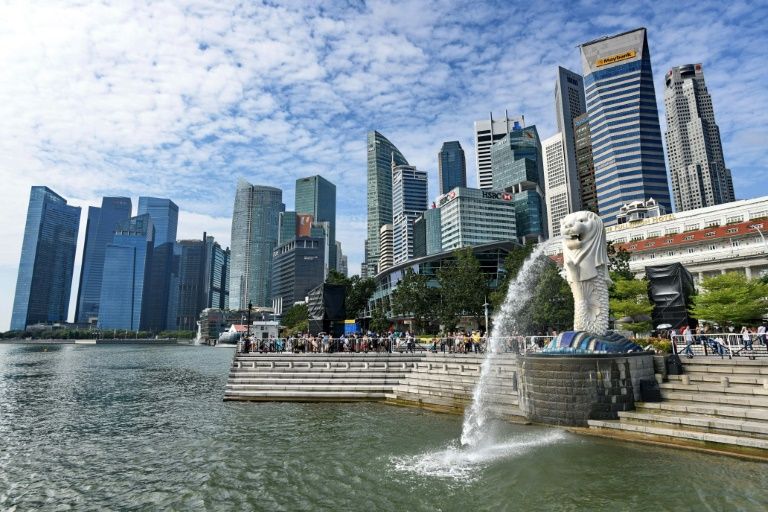UK signs Singapore trade deal as EU talks falter
Singapore (AFP) – Britain on Thursday signed a free-trade deal with Singapore, giving it a key foothold in Asia as it seeks to forge its own path after leaving the European Union, while talks on a post-Brexit deal stumble.
The agreement largely replicates an existing EU-Singapore pact, with the city-state saying it will cover more than 17 billion pounds (US$22 billion) in trade.
It removes tariffs, gives both countries access to each other’s markets in services and cuts non-tariff barriers in electronics, cars and vehicle parts, pharmaceutical products, medical devices and renewable energy generation, the ministry said.
Duties will be eliminated by November 2024, the same timeline as the agreement between the EU and Singapore, a former British colony that maintains close links with London.
As the deal was signed in the city-state, Britain’s International Trade Secretary Liz Truss praised Singapore for its leadership on free trade.
“Now the United Kingdom is back as an independent trading nation, we are free to join this campaign,” she said.
“Singapore is already the UK’s largest trade and investment partner in ASEAN (the Association of Southeast Asian Nations), while the UK is Singapore’s top investment destination in Europe.”
Her Singapore counterpart, Chan Chun Sing, said the deal “provides British businesses a platform to access opportunities in the region through Singapore”.
Truss said the agreement will take Britain a step closer to joining a massive free-trade zone, the Comprehensive and Progressive Agreement for Trans-Pacific Partnership, of which Singapore is a member.
The pact groups 11 Pacific Rim nations, among them Australia, Canada, Chile, Japan, Mexico and Vietnam. A previous version of the deal was once championed by the US, but President Donald Trump abandoned it.
Britain signed its first major post-Brexit trade deal with Japan in October, but Thursday’s agreement is its first with a member of ASEAN.
The 10-country bloc is home to 650 million people and — prior to the pandemic-induced downturn — had enjoyed rapid economic growth in recent years.
Thursday’s signing came after British Prime Minister Boris Johnson and European Commission President Ursula von der Leyen gave themselves until Sunday to decide on the future of post-Brexit negotiations, following a three-hour dinner that left the two sides “far apart”.
Britain and the EU are running out of time to reach an agreement on a future trading relationship before a post-Brexit transition period finishes at the end of the year.
Disclaimer: Validity of the above story is for 7 Days from original date of publishing. Source: AFP.


